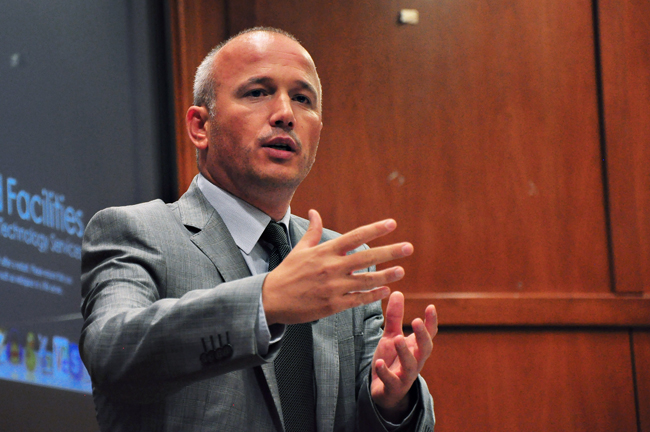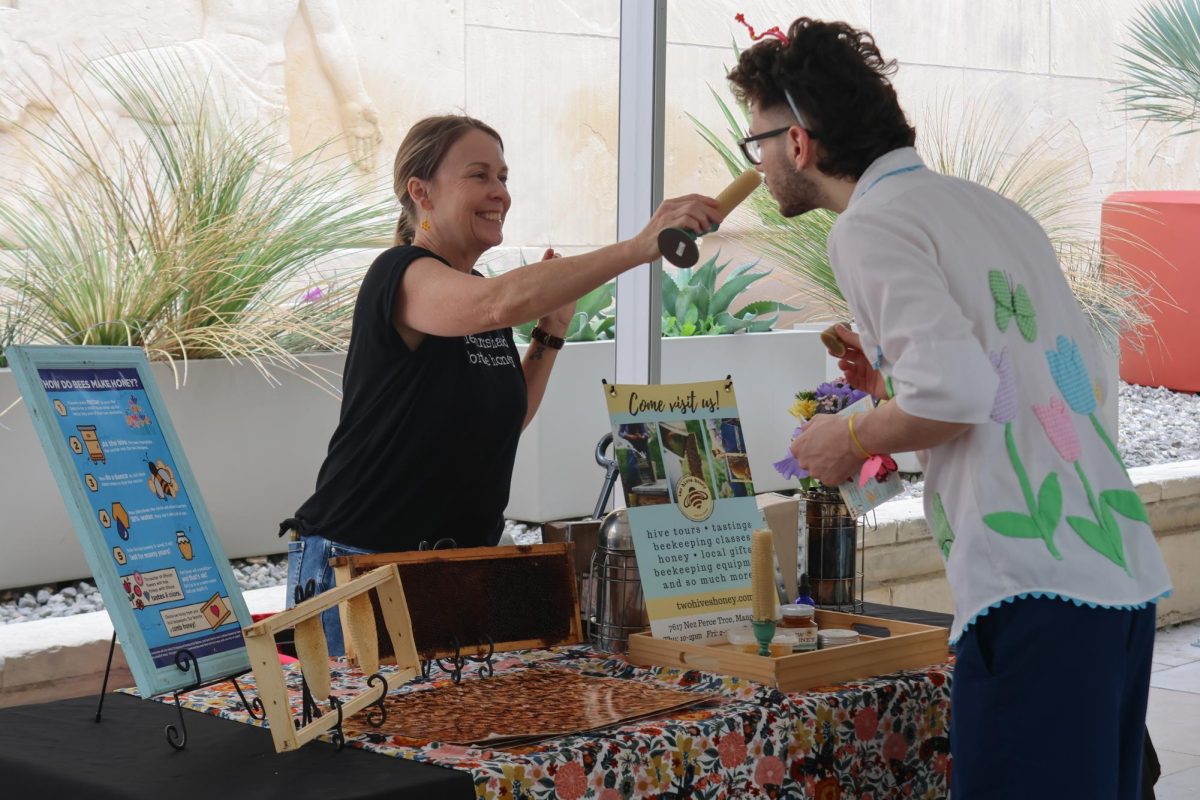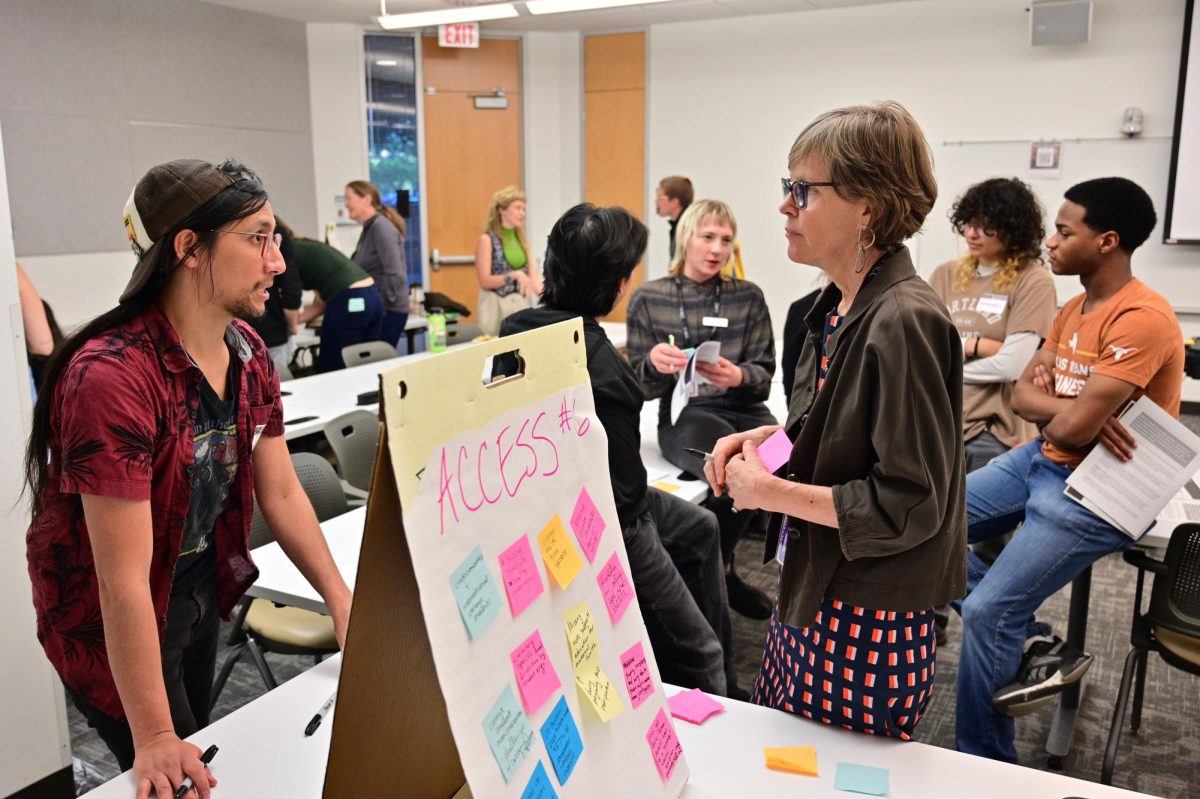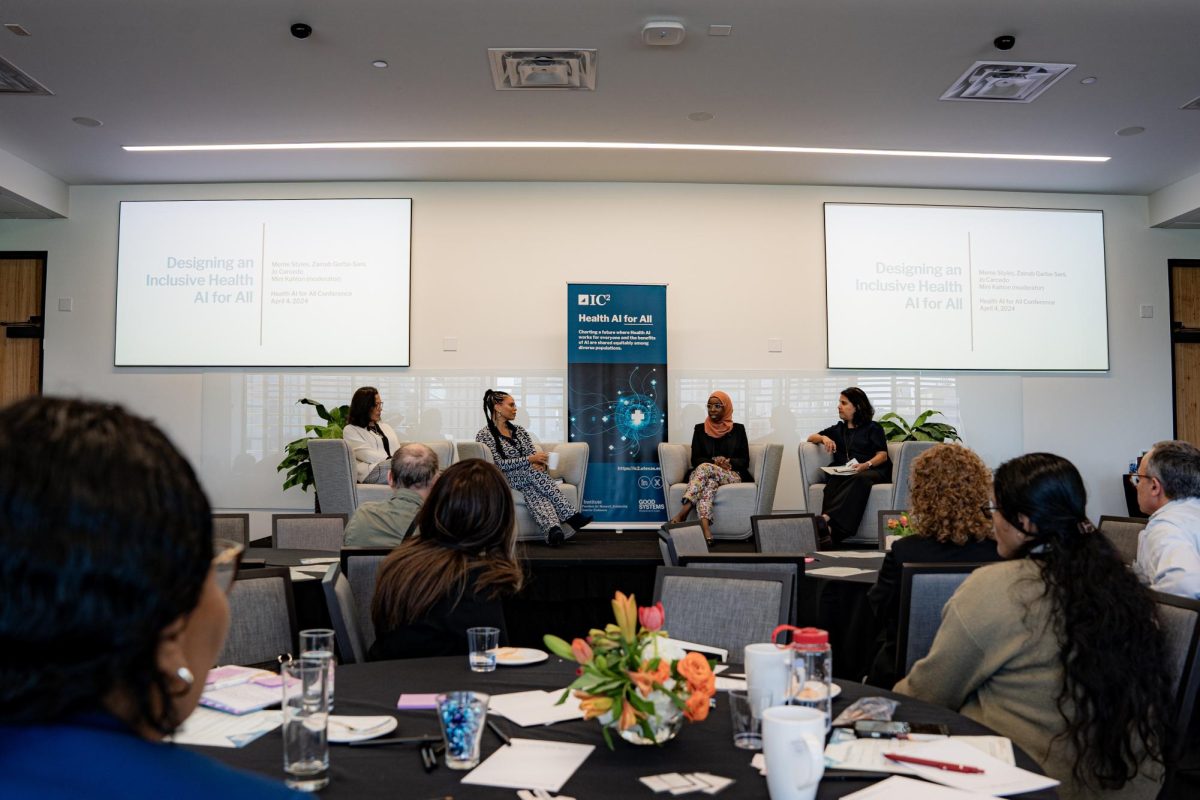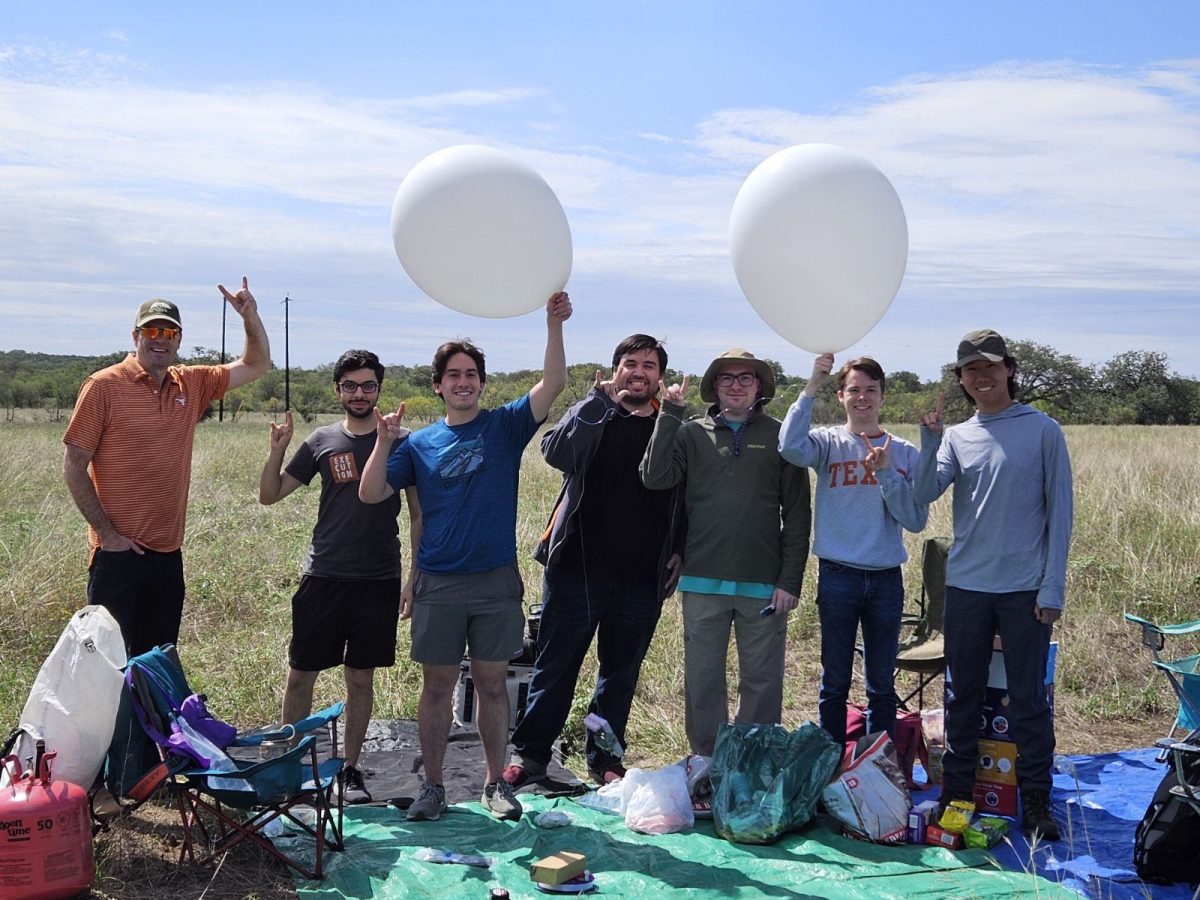A diverse audience filled a Mezes lecture hall Tuesday evening for a talk on the Middle East, with some audience members resorting to sitting on the ground and in the aisles.
The Department of Middle Eastern Studies hosted the talk, which discussed sub-state groups in the Middle East. The audience included faculty and students, undergraduate and high school alike.
“I brought the kids so they could get a perspective on the Middle East from a secular source,” said Cassandra Troy, an Austin High School English teacher. “Many parents were concerned about the situation with ISIS because we send a group of seniors annually to Turkey.”
The lecturer, Gökhan Bacik — dean and professor of political science at İpek University in Gaziantep, Turkey — specializes in state formation.
“If I were to personally sum up what’s happening in the Middle East right now with one word, it would be ‘refugees,’” Bacik said. “Some cities in Syria have lost more than 200,000 citizens.”
Bacik said “revolution-storations” are responsible for these refugees.
“People want to dismiss regimes automatically,” Bacik said. “To remove regimes the people must act quickly to avoid disaster and state collapse.”
According to Bacik, the outcomes of revolutions can be unpredictable. Bacik cited the political coup in Egypt as an example of a successful revolution.
“People defeated the regime, and it left,” Bacik said. “Turkey officially views what happened in Egypt as a coup d’état.”
Bacik said that discussions about the Middle East must no longer focus on nation-states but rather small sub-state actors. Bacik believes conflicts in the Middle East cause populations to seek stability within smaller groups.
“This is the golden age of sub-state actors,” Bacik said. “When extreme groups occupy an area and start killing peoples they are against, the only thing those people have to do, since there are no government machines, is turn to another sub-state group for protection.”
The lecture topic appealed to an interdisciplinary group; many art history, political science and Middle Eastern studies majors attended.
“We wanted to bring in a lecturer who would have an insight into a confusing area of the world,” said Jeannette Okur, Middle Eastern studies lecturer. “He came highly recommended by some of my former colleagues from when I was in Turkey.”



